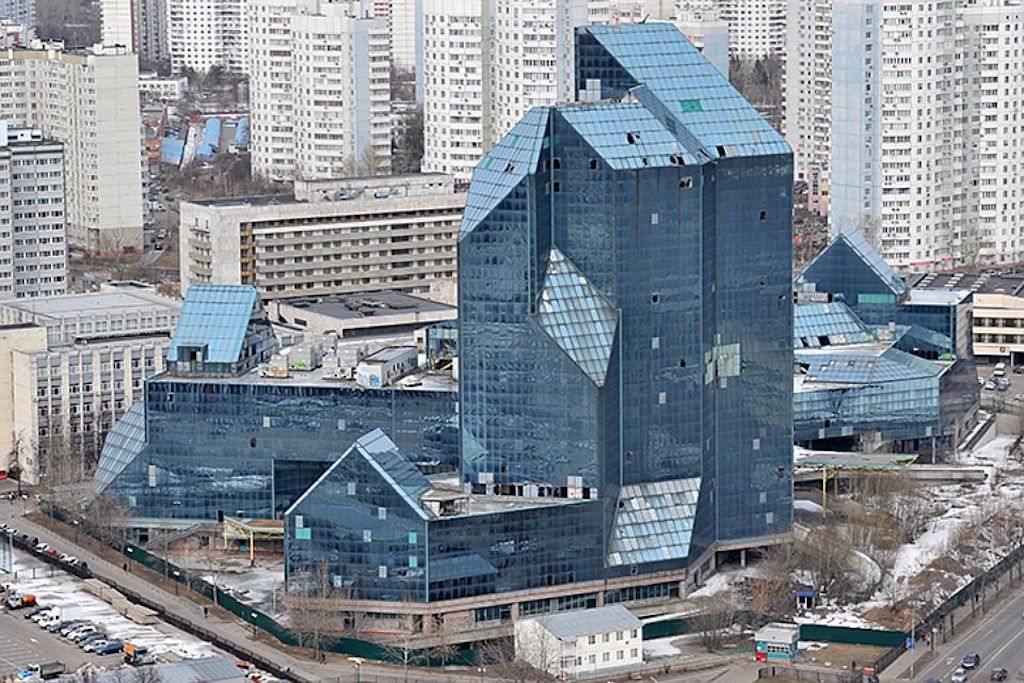Wagner Group, Private Equity, Historiography

One of my Sunday morning rituals is listening to Mark Galeotti's "In Moscow's Shadows" podcast. Galeotti is, in my humble opinion, one of the best commentators on contemporary Russian politics. First, he has an incredible "historian's intuition" regarding subjectivity and motivation, which has made him a better political analyst than most political scientists and a focus on contemporary politics and institutions, which historians tend to avoid. This has probably cost him in academia but makes him the best in the business as far as thinkers. Second, and even more importantly, his career has been spent studying the intersection of security, policing, and organized crime. This means he talks to people in Russia that other Western observers tend not to have access to. Thus, he not only has insights into the sociology of a key part of Russian politics that most Western observers do not, but that aforementioned intuition allows him to contextualize the role of that segment into the "big picture."
Reading and listening to Mark Galeotti over the years has made me realize that a lot of Russianists miss the trees for the forest at times. We all have very good contacts with either liberals or so-called "realists" in the foreign policy establishment, but we never really ask what real power they wield and, if they do wield it, how and in what contexts relative to the much darker corners of Russian politics. Indeed, this is why I like to think about a lot of things about studying Russia as testing the null hypothesis regarding modernity. I'll come back to this.
This gets me back to Galeotti's podcast episode, which, appropriately enough, I listened to in the shower. For the past few episodes, he has appropriately been speaking about Prigozhin and the Wagner group (which he is writing a timely book about). One fact that he has been pointing out is that Wagner's success has been in providing a complete package of "authoritarian support services" in the larger context of the many tools of the broader Concord Group. Concord not only provides trigger pullers but other forms of psychopaths like "political technologists" to rig elections and consultants to get your image clean in the West. The other advantage to the Concord Group's agglomeration effect is it lets other lines of business finance long-term assets that Wagner aquires in exchange for its services, like gold mines, oil fields, etc. These are cheaper than paying them with cash because, as Keynes teaches us, cash now (especially for a poor FX-constrained and politically isolated emerging market) is usually dearer than cash later.
For people coming out of finance or any related economically-based discipline, something of a lightbulb might be going off. The Concord Group might be one of history's top five most violent private equity firms. What it does is essentially the same as a PE firm but with way more guns (as far as we know). Concord Group has a limited partner (LP)– the Russian state. In a PE firm, an LP is the investor in the project. An LP signs a contract with the PE firm, making them a partner in a venture without management rights but with rights to a portion of the profit generated by a deal. As a partner, the LP is obligated to provide the PE firm (termed general partner) cash to help finance an acquisition. This provides the GP with a lot of free leverage and optionality, thereby letting them buy out assets at a lower cost of financing.
In theory, these would be underperforming firms taken private, improved through some genius (layoffs) or agglomeration effects (combining firms), and then placed back for sale on the public market for a profit. This sometimes happens, especially if the PE firm has a specialized focus. For example, there are some very successful stories of PE firms run by talented engineers and managers in the automotive parts and oil and gas sector buying up lots of small, independent firms that were failing and combining and restructuring them into more efficient vertically integrated operations. However, most of the time, PE firms will use their leverage advantage to buy a firm relatively cheaply, make its financials look better, and then sell it in a relative but not absolute value play. This is one of the better outcomes. A worse one is when the PE firm uses a lot of financial engineering to load a company up with debt and then bankrupt it and write it off for profit – if you've seen Goodfellas, this is the legal version of the "bust out" scheme they run on the bar. If you are an outsider interested in an introduction to these issues, the book to read is Eileen Applebaum and Rosemary Batt's Private Equity at Work: When Wall Street Manages Main Street.
In Galleoti's account, Concord did something like this. Basically, the Russian state was Prigozhin's LP in the sense that it gave him access to leverage. Prigozhin was Putin's Chef, having started in food sales and restaurants. Concord continued that line of work, receiving lots of state contracts for catering and food services but not delivering the services to anything near the standard(delivering spoiled food to high schools and the military, for example). These contracts gave Concord a lot of cash to invest in troll farms and mercenaries, which were the real payoff to the state for the cash. In turn, with these services and liquidity, Concord could go to various unsavory governments and offer their services, not for cash but for assets like gold mines and oil fields. Concord could then do a value play where these assets were acquired for a relatively low cost to their yield, even if the yield isn't great. By having the Russian state behind them ready to issue liquidity (and other hard-to-access resources like heavy weapons, trained commandos, and anti-air defenses), they could keep rolling over the funding as needed and enter new opportunities. It's a classic PE play!
Galeotti wonders if, without Concord and Prigozhin's "violent entrepreneurship," the Russian government can continue its successful operations. The MOD isn't exactly a flexible or innovative bureaucracy, and its new pet mercenary groups like Redut won't be able to offer the full portfolio of services like Concord. I would add that I am not sure these guys wouldn't have Prigozhin's implicit skill in managing the balance sheet, which made Concord work as the world's possibly most violent PE firm.
Beyond the fun analogy, there might be something bigger here, which is why I decided to write this shower thought up. One of the big debates in the historiography of the USSR is the so-called "neo-traditionalist" versus "alternative modernity" schools. Neo-traditionalists argue that the USSR should be understood in the context of a broader continuity of Russian historical trends. They tend to be social historians who look at the persistence of practices like the economy of favors and see a state that, whatever its intentions, operates through the habits of Edward Keenan's concept of "Muscovite Political Folkways." On the other hand, scholars who subscribe to the multiple modernities framework tend to study the USSR as a variant of the modernist state, with roots in the Western enlightenment tradition and the broader global political conjuncture. These tend to be historians influenced by the cultural turn and thus often examine how Soviet social relations are created by the subject's engagement with what Steve Kotkin called the "grand strategy of the state." In turn, the USSR is not something outside of the modern experience but a specific variety of modernity: one amongst many. There are, of course, many debates within these paradigms and nuances, but this is the rough idea.
Interestingly, this whole debate is mostly about the Stalin era and, even more specifically, pre-war Stalinism. The post-war, post-Soviet, and late-Soviet periods don't play into things that much. This is because of how the field evolved over time and because the bedrock question for these histories is the legacy of 1917: how that revolution turned into that regime? Was it an inevitable result of Leninism, or was it something particular to Russia's social structure?
What things like understanding Wagner as a PE firm force us to do is not only go beyond the usual timeframe of this debate but also make some assumptions very explicit. First, it has to contend with modernity as a moving target, one that the USSR's existence shaped. Is the Cold War part of modernity or post-modernity? Is the American hegemonic system the same as the European Imperial one that the USSR was born under? Maybe that was easier to put aside in the 1990s when these debates began, but it is not so easy now. Second, we should have a very thick and explicit distinction between "micro" and "macro." Historians hate theory, but the micro-macro distinction, even if it is reductionist, does help other social scientists have a language about causality. Do we have to root our model of the world on some micro actor's rationality, or do macro conditions themselves form the concept of rationality is as much a debate in economics (well, not in the mainstream of the field but increasingly more so) as it is in the Soviet subjectivity debate within the multiple modernities approach (whether there is some subject that rationally reacts to ideological projects or whether we should not see these reactions as a cost-benefit analysis and examine belief as an articulation of genuine beliefs).
Why I find this thought about the Concord group and violent PE so intriguing is that it offers us a way to look at the Russian state through the lens of political economy: that is to ask how it has adapted very liberal institutions like a private equity firm to very illiberal means. This does not mean that Russia or the USSR is some perversion of or final boss of modernity. Nor that it is traditionalist and guided by folkways more or less than any other society. Rather, it is a set of elites with tools that they adapt to do something at a certain cost and with some form of leverage that is structured via lots of complex path dependencies and constraints. Concord Group's adaptation of the PE model, by some accounts, the ultimate representative of globalist neoliberalism to achieve the Russian state's very un-globalized Great Power political ends provides a lot of food for thought.
Not really a satisfying ending, but I am grappling with the problem all the time. This requires historians to think about what hypothesis they are testing and if their case study is statistically significant enough to support that hypothesis. It's not so easy, of course, in something as complex as historical scholarship, but I find that way of thinking useful, especially since nulls are often as informative as statistically significant results. To get at this kind of history, I think we need some structural theory that lets you see something like Concord and realize that from the point of view of balance sheet leverage, it's a PE firm with guns. That's what Charles Maier argued distinguishes a political economy approach to history from one based on Hermaneutic readings of sources.
One place I do this and offer a bit of a framework for how to think about it is my forthcoming book, which shares a name with this blog! It's going to be out in Winter 2023/4 with Harvard Press, and you should be excited to read it. I'll also be publishing more formal peer-reviewed stuff on Russian historical political economy, some of which is a work in progress and some of which has already been accepted and is going through the long process of academic publishing. Those who know me relatively well are already aware of, or at least have some hints of, some career and personal life challenges/changes, so, for better or worse, I might have some time (though not money) to work on being a historian of Russia again.
